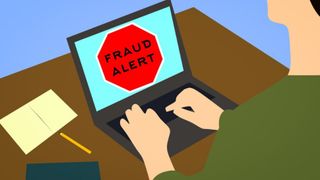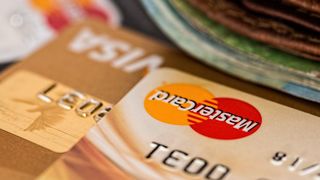Tips and tricks to spot if you've been a target of tax identity theft
It is essential to remain vigilant and watchful for any indications of fraudulent activities.

Preventing identity theft is crucial, especially when it comes to your tax affairs. If criminals get hold of your Social Security number, name, and address, they can attempt to steal your tax refund. Fortunately, the IRS has measures in place to help you reduce the risk of this happening, along with several free tools you can use. One of the most effective ways to supplement the IRS's advice is to sign up for an identity theft protection package.
It's also helpful to be aware of what to watch out for if you're concerned about identity theft. Even if you're not particularly worried, there are still several signs you should keep in mind in case your data is ever compromised. Nobody is immune to tax identity theft, so it's crucial to know the signs that suggest it's happened to you.
A Techradar Choice for Best Identity Theft Protection Aura is an excellent choice thanks to its user friendly interface, antivirus service and detailed reporting dashboard. Save up to 50% with a special Techradar discount.
Look for unusual behavior
One of the main things you can do to keep an eye out for possible signs of more general identity theft is to keep close tabs on your bank statements. If you've noticed something that doesn't quite look right, or indeed, you've had a check bounce, fraudulent activity could happen on one or more of your bank accounts.
Although this can be a hassle to put right, you want to act as soon as possible by notifying your bank and closing the account. Chances are you'll have things like payments that go out of the account, so be sure to inform the payees or amend the payment details to ensure there aren't more problems further down the line.

Taxing details
While personal banking is one thing, tax identity theft can cause even more of a nightmare. Generally, tax-related ID theft and tax refund fraud can happen if criminals get your details, such as name, address, date of birth, and Social Security number.
If this happens, you'll probably have difficulty filing your tax return, so fraudsters often file for a tax refund using your information. If the Internal Revenue Service hasn't informed you of suspicious activity, you'll want to contact them as soon as possible.
Another step in this process is to notify the Federal Trade Commission and the local police, which may help expedite follow-up investigations.
Are you a pro? Subscribe to our newsletter
Sign up to the TechRadar Pro newsletter to get all the top news, opinion, features and guidance your business needs to succeed!
Wider issue
Of course, tax identity theft could be just one part of fraudulent activity that might affect you. Perhaps the worst part about having your Social Security number compromised is that it’s more complex to sort the issue out. While having credit card accounts used fraudulently is one thing, the knock-on effect of someone stealing your Social Security number is more profound.
Getting a replacement credit card is relatively easy, but once your Social Security number has been stolen, several hurdles must be overcome. The other thing is that, even if you’re vigilant, the telltale signs of tax identity theft can take a while to filter through.
If you’re generally slow at filing your tax return, it’s a good idea to revisit that line of thinking and try to file as soon as possible. Doing this could steal a march on criminals if they’ve managed to get hold of your Social Security number.

Credit report
One of the quickest ways of keeping tabs on whether or not you've been a victim of identity theft is to get regular insights on your credit report. Using an identity theft protection service can help you do this, while the three main bureaus should also be contacted if you spot something untoward. Although Equifax, Experian, and TransUnion operate independently. If you tell one credit bureau about your suspicions, they will notify the others.
Simply checking your credit score and viewing credit reports regularly can help you see if there has been any strange activity concerning your data. Similarly, look for things like bills going missing or if you start getting statements that aren't anything to do with you or your activities. The same goes if you start receiving calls from debt collectors, and remember not to give any unsolicited callers your details either.
Dark web
Remember that there’s an endless demand for information such as your details and tax data, especially on the dark web. This shady area of the internet is thriving, and many aspects of its operation include the buying and selling personal IDs, including names, addresses, and Social Security numbers. You name it, and the dark web probably has it.
While you might not be able to eradicate the risk of personal identity theft, there are plenty of preventative measures and safeguards that you can have in place to at least minimize the risk. There are plenty of options if you’re considering an identity theft protection package.
These may seem straightforward tips, but when used with an identity theft protection package, they’ll go a long way to helping you stay more secure. And, crucially, keeping your tax-related identity as much of a secret as it needs to be.
More from TechRadar Pro
- Check out the best identity theft protection
- The best tax software around today
- Take a look at the best accounting software
Bryan M. Wolfe is a staff writer at TechRadar, iMore, and wherever Future can use him. Though his passion is Apple-based products, he doesn't have a problem using Windows and Android. Bryan's a single father of a 15-year-old daughter and a puppy, Isabelle. Thanks for reading!


